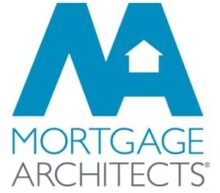Types of Mortgages
While a mortgage is fundamentally a loan that is secured against your home, there are many variations to the type of mortgage that can be used for various needs. Based on your goals and risk characteristics there may be a number of different mortgage products that will meet your needs.
Below you will find a sampling of the many different types of mortgages that you may be exposed to. While there are hundreds of other combinations – these are the ones you will most commonly hear about or come across.

Trying to figure out which is appropriate for your situation may seem daunting, but we take great care to not overwhelm you during the process. For this reason, one of the first steps in our mortgage process is to arrange a consultation where we can discuss and review your financial goals in detail – and then go over some options of the type of mortgage that may be right for you.
A Pre-Approved mortgage is a Free and No-Obligation deal that lets you know before you go looking for your home or signing an offer to purchase, how much you can afford to borrow based on your qualification and personal credit rating. We’ll arrange for you the most competitive rates with longest rate guarantee period that goes up to 120 days – if rates go higher, your rate will not be affected, and if rates go lower, you get the lower rate. This protection is solely responsible for savings thousands of dollars for many people who obtained a pre-approval and the rates increased afterwards.
Too often in the past, the mortgage was left to the very end, but with our Online Pre-Approval or by simply e-mailing us, we can take care of this important process within hours. Once you are Pre-Approved, you can confidently negotiate an offer on a home. A seller also prefers to negotiate an offer of a purchaser who has been pre-approved. With more lenders, lower rates, and no-cost, no-obligation, make us your choice for your pre-approval.
A conventional mortgage is a loan that does not exceed 80% of the purchase price or appraised value of the home, whichever is less. This type of mortgage does not have to be insured against default.
| Loan-to-Value | |
| Premium on Total Loan | |
| Up to and including 65% | 0.60% |
| Up to and including 75% | 0.75% |
| Up to and including 80% | 1.25% |
| Up to and including 85% | 1.80% |
| Up to and including 90% | 2.40% |
| Up to and including 95% | 3.60% |
A First mortgage is the first debt registered against a property that is secured by a first “charge” on the property. If a default on the mortgage occurs, the first lender has first right on the property to recover the outstanding principal and interest costs, and any other costs incurred during the process.
A second mortgage is a debt registered after a first mortgage has been registered. In most cases, the interest charged on the second is higher than the first, reflecting the higher risk to the lender, but over a short term, still more cost effective than paying the high cost of the CMHC/GE Capital insurance premium. They can be used to finance up to 90% of the purchase price or value of the home.
An open mortgage allows you the flexibility to repay the mortgage at any time without penalty. Open mortgages are available in shorter terms, 6 months or 1 year only, and the interest rate is higher than closed mortgages as much as 1%, or more.
They are normally chosen if you are thinking of selling your home, or if you are expecting to pay off the whole mortgage from the sale of a another property, or an inheritance (that would be nice).
A closed mortgage offers the security of fixed payments for terms from 6 months to 10 years. The interest rates are considerably lower than open, and if you are not planning on any one of the above reasons, then choose a closed mortgage.
Nowadays, they offer as much as 20% prepayment of the original principal, and that is more than most of us can hope to prepay on a yearly basis. If one wanted to pay off the full mortgage prior to the maturity, a penalty would be charged to break that mortgage. The penalty is usually 3 months interest, or interest rate differential (I.R.D. – please refer to glossary for detailed explanation).
With a fixed-rate mortgage, the interest rate is set for the term of the mortgage so that the monthly payment of principal and interest remains the same throughout the term.
Regardless of whether rates move up or down, you know exactly how much your payments will be and this simplifies your personal budgeting. In a low rate climate, it is a good idea to take a longer term, fixed-rate mortgage for protection from upward fluctuations in interest rates.
The Adjustable Rate Mortgage (A.R.M.) provides a lot of flexibility, especially when interest rates are on their way down. The rate is based on prime minus 0.375% and can be adjusted monthly to reflect current rates, and for the first 3 months of the mortgage, a large discount on the rate is given as a welcoming offer.
Typically, the mortgage payments remain constant, but the ratio between principal and interest fluctuates. When interest rates are falling, you pay less interest and more principal. If rates are rising, you pay more interest and less principal, and if they rise substantially, the original payment may not cover both the interest and principal. Any portion not paid is still owed, or you may be asked to increase your monthly payment. This mortgage is fully convertible at any time without any cost to you, if you choose a 3 year term or greater, and offers a 20% prepayment privilege at any times throughout the year. While traditionally, banks offer variable mortgages up to 80% of the purchase price or the value of the home, we can go up to 90% with this product.
Use the equity in your home that you have built up to purchase investments (where interest costs would be deductible against the earned income), finance home renovations, buy a car, or any other reasonable needs, with rates as low as prime.
They can be arranged up to 80% of the purchase price or value of the home, and should you need more, we can arrange another secured line of credit as a Second mortgage up to 90%.
Accessing the available credit is as simple as writing a cheque, or using the issued credit and/or debit card. You do not have to draw the money until you need it, and once you make a withdrawal, you can pay of your balance at any time or make monthly payments as low as interest only. As you pay down the balance, you have that much more available credit (revolving credit).Being a secured product, there are the normal legal and appraisal fees that are applicable. From time to time, there are promotions where a lender will cover for part or all of these costs.
A word of caution: Although these lines are very flexible and versatile products, great caution and care should be taken. It is very easy and very tempting to use it for everything whereas normal restraint would have been exercised, and suddenly, there are thousands of dollars more that have to be repaid.
These are mortgages that are assessed on the equity of the home (market value minus the mortgage amount). They can be as high as 80% of the purchase price or value of the property and if more is required, we can look at a small Second mortgage. These are generally offered to applicants that do not meet the normal income and/or credit qualifying guidelines. You may have little or no income verification, self-employed, and/or your credit may be less-than-perfect.
If you wanted the lower rates of a short term mortgage but wanted the security of a long term, why not choose both. Yes, “build your own mortgage” product. You can split your mortgage in to as many as 5 parts, all having different terms, rates, and amortizations, but one total monthly payment. This way, you are spreading the risk. But, be prepared to be “hands-on” and watch the market very carefully here. This is not for everyone, as the time and stress levels are quite high.
When rates are on their way down, or you may feel that they will in the near future, a 6 month convertible mortgage offers you the short term commitment at fixed payments, with an added advantage that while within the term, the mortgage is fully convertible to a longer term from 1 year to 10 years.
At the end of the 6 month period, the mortgage becomes fully open, where one can renew with the existing lender or transfer to another lender. Even though it is offered at many financial institutions, there are differences from one to the next.
Bridge financing refers to a special, short-term loan needed to cover the time gap when two properties, both firm sales, are involved and the closing dates don’t match. The property being purchased closes before the one that was sold.
There is a small set-up fee charged by the lender to have the bridge loan arranged, plus the cost of the interest as now you are carrying both properties for a short time. The rate charged on the bridge loan is about 2-3% above the bank’s prime.
